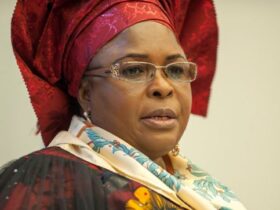
Nigeria’s Dangote refinery, the largest in Africa, has begun importing crude oil from the United States for the first time, in a move that could have significant implications for the country’s energy sector and economy.
The refinery, which has a capacity of 650,000 barrels per day, is expected to help Nigeria reduce its reliance on imported fuel and become a net exporter of refined products.
However, the decision to source crude oil from the US instead of Nigeria’s own oil fields has raised some questions about the viability and sustainability of the domestic oil industry.
According to traders with knowledge of the matter, Trafigura Group sold 2 million barrels of WTI Midland to Dangote refinery for end-February delivery.
This is the first time that the giant refinery has purchased non-Nigerian crude, traders said.
WTI Midland is a type of US crude oil that is generally lighter and sweeter than Nigerian crude oil, which makes it easier to refine.
Additionally, the US is a major producer of shale oil, which is a type of crude oil that is extracted from rock formations using horizontal drilling and hydraulic fracturing.
Shale oil production has boomed in recent years, and it has made the US a major exporter of crude oil.
READ ALSO: Forbes Ranking: Dangote Regains Title as Africa’s Richest Person With $13.9bn Net Worth
The Dangote refinery, which is owned by Aliko Dangote, Africa’s richest person, started operations earlier this month. It is targeting an initial processing rate of 350,000 barrels a day before ramping up toward its full capacity.
The refinery is sourcing domestic crude under a supply deal with the trading arm of the state company Nigerian National Petroleum Co. (NNPC).
The first cargo that arrived at the plant last month was Nigeria’s Agbami crude, sold by a trading unit of Shell Plc. This was followed by more Nigerian barrels including the nation’s Amenam, Bonny Light and CJ Blend streams.
As well as processing domestic feedstock, the new giant plant is equipped to run other African crudes as well as supply from further afield including the US and Saudi Arabia, Dangote Group said earlier this month.
The refinery is expected to start gasoline production by March, local newspaper The Guardian reported at the weekend, quoting Dangote himself.
The refinery’s switch to US crude oil comes at a time when Nigeria’s oil production has been struggling to meet its OPEC quota of 1.75 million barrels per day for 2023.
The oil cartel has cut Nigeria’s production quota for 2024 to 1.65 million barrels per day, citing the country’s failure to comply with the previous target.Nigeria’s oil output has been hampered by various factors, including pipeline vandalism, militant attacks, technical issues, and regulatory uncertainty.
The country’s oil sector, which accounts for about 90% of its foreign exchange earnings and 60% of its government revenue, has also been hit by the global oil price slump and the COVID-19 pandemic.
Some analysts have expressed concern that the Dangote refinery’s preference for US crude oil could further undermine Nigeria’s oil industry, which is already facing stiff competition from other African producers such as Angola, Ghana, and Senegal.
They argue that the refinery should prioritize Nigerian crude oil, which would create more value for the country and support the local oil sector.
However, others have welcomed the refinery’s decision to diversify its crude oil sources, saying that it would enhance its operational efficiency and profitability.
They also point out that the refinery would still benefit Nigeria’s economy by creating thousands of jobs, reducing fuel import bills, and boosting the country’s refining capacity.
The Dangote refinery is seen as a game-changer for Nigeria’s energy sector, which has long suffered from inadequate infrastructure, poor management, and corruption.
The refinery is expected to meet the country’s domestic fuel demand, which is estimated at about 300,000 barrels per day, and also export surplus products to neighboring countries and beyond.
The refinery is part of Dangote’s ambitious $15 billion investment plan, which also includes a fertilizer plant and a petrochemical complex.
The project is expected to generate about $9 billion in annual revenue and contribute about 2% to Nigeria’s gross domestic product.








Leave a Reply